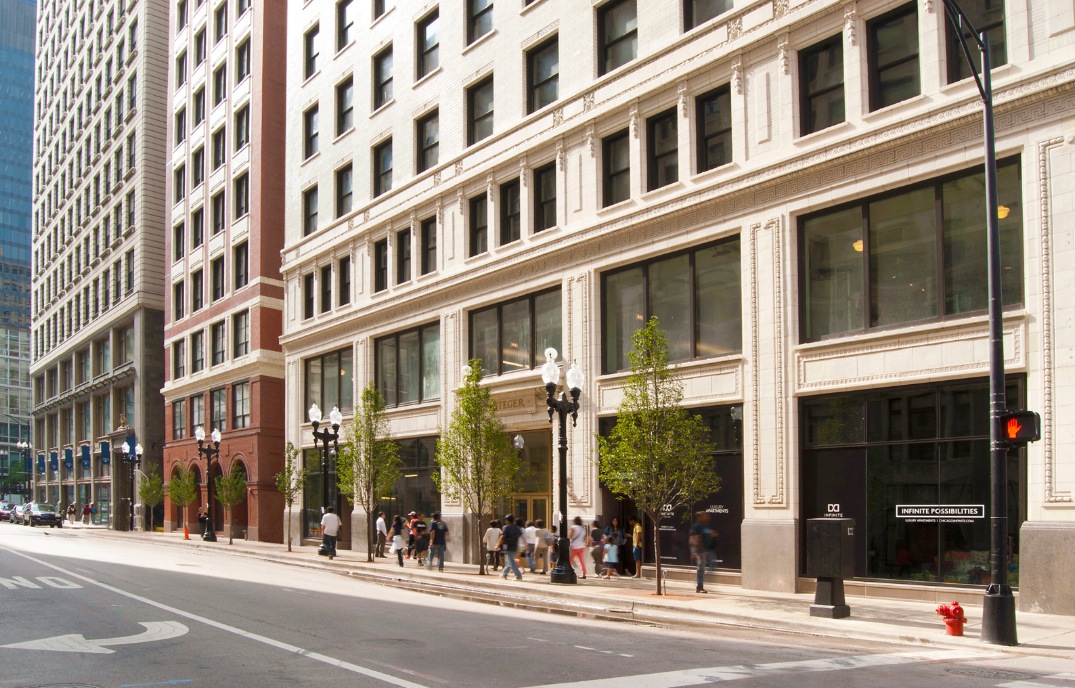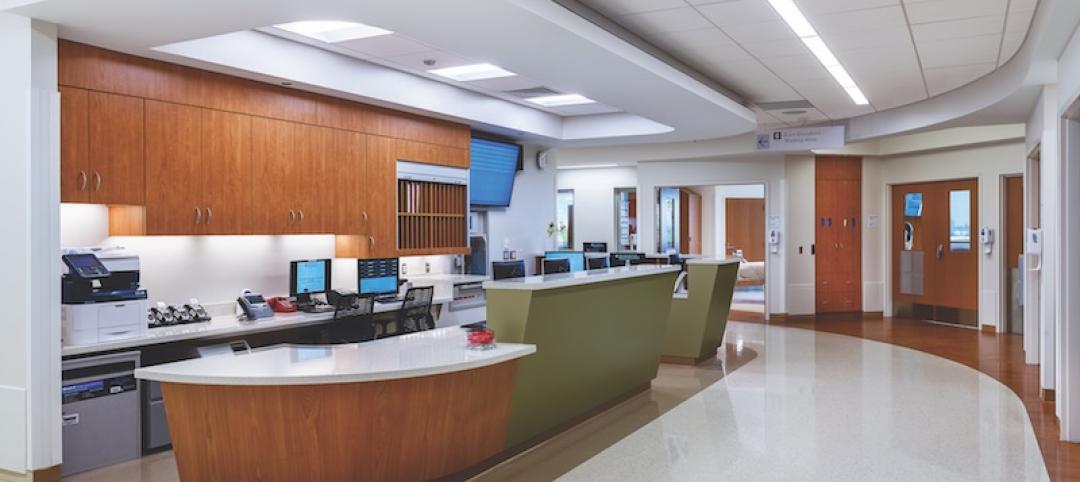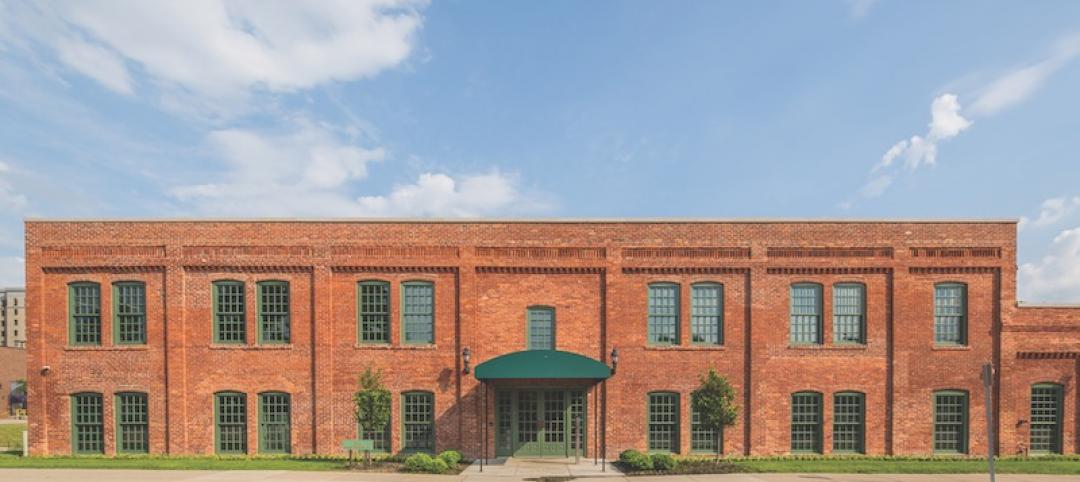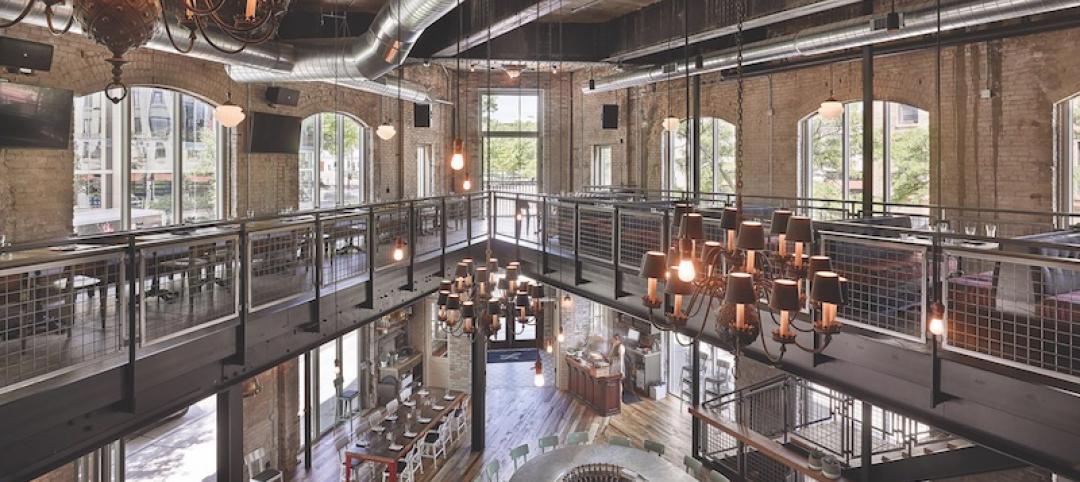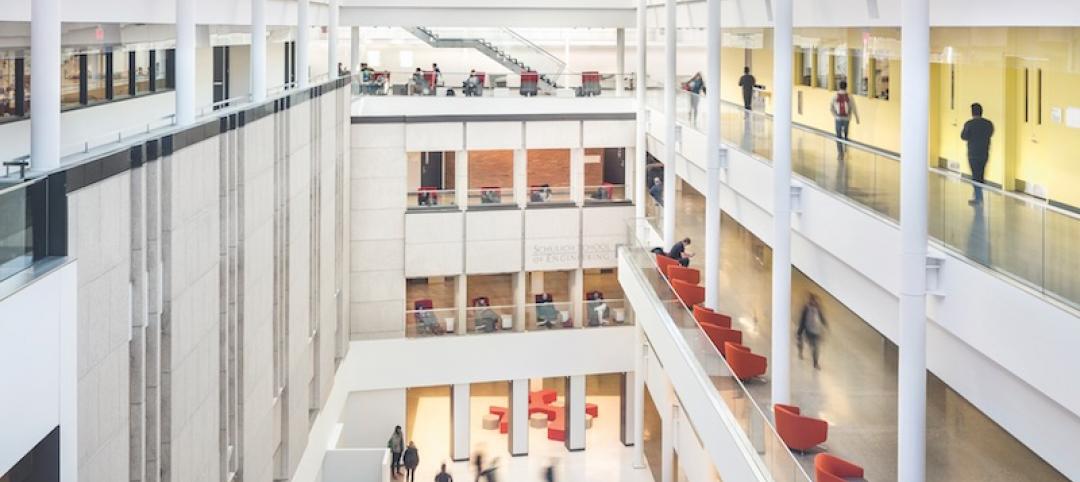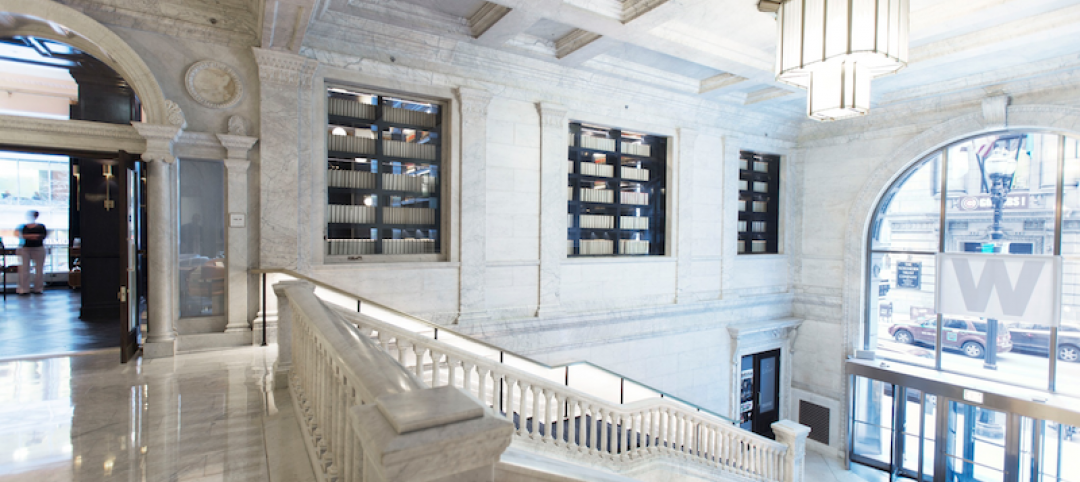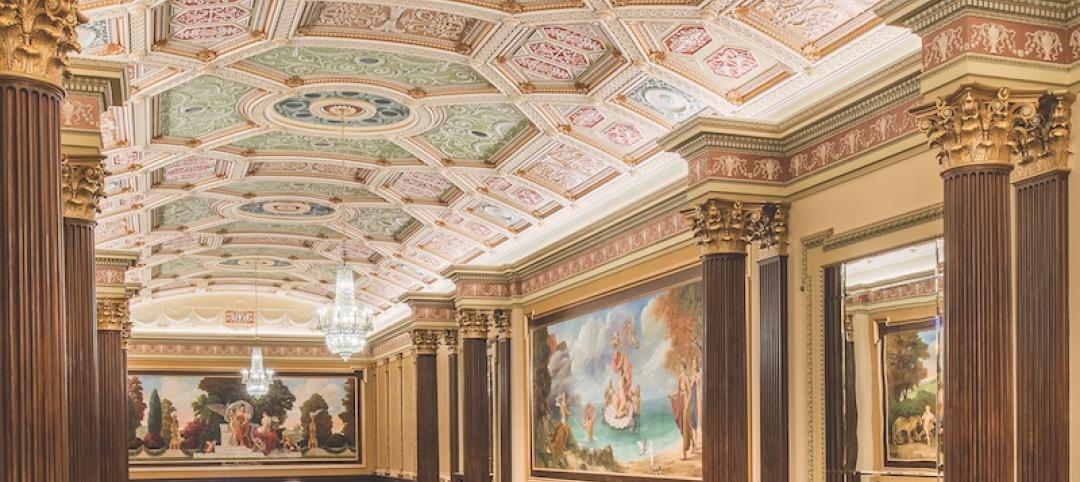Infinite Chicago is a redevelopment of three historic downtown buildings: the former Gibbons and Steger Buildings and, between them, the one-time Pickwick Stables. Prior to their renovation, all three buildings had fallen into serious disrepair and were only 40% occupied.
The buildings are located at the center of Chicago’s largest higher education campus, with several colleges and universities clustered nearby. The project repurposed the 16-story Gibbons Building and the 19-story Steger Building into 124 student living units with 409 beds.
SILVER AWARD
INFINITE CHICAGO | Chicago, Ill.
Building Team
Submitting firm: Pappageorge Haymes Partners (architect)
Owner/developer: DRI/CA Gibbons Steger (c/o CA Ventures)
Interior design: Valerio Dewalt Train Associates
Structural engineer: Stephen Kibler LLC
M/P engineer: Ewing-Doherty Mechanical, Inc.
Electrical engineer: JMS Electric, Inc.
Civil engineer: Ericksson Engineering Associates
General contractor: Linn-Mathes Inc.General Information
Size: 215,200 sf
Construction cost: $33.7 million
Construction time: January 2013 to August 2014
Delivery method: Design-bid-build
Because funding included historic tax credits, the project had to comply with the strict preservation/repair standards set by the U.S. Secretary of the Interior.
This renovation encountered its share of obstacles: substandard mechanical and electrical systems, inadequate exits, deteriorating façade, and zero lot line setback conditions. An access easement for a neighboring structure had to be worked around. The Gibbons and Steger structures practically bumped up to elevated train lines in Chicago’s Loop, which limited window and ventilation options.
The foundation under the northwest column of Steger, built in 1910, was practically nonexistent. There were no masonry ties at two of the building’s corners. Steger’s shear wall X-bracing, with its exterior moment frame, added to the project’s complexity.
The Building Team repaired the façades and replaced a five-foot terra cotta cornice at Steger with a section made from glass fiber–reinforced concrete. (Original drawings provided by the University of Texas at Austin were used to create some missing parts.) By using an offsite cooling facility, the buildings could forgo the need for large onsite electrical services and a cooling plant.
The renovation’s most noteworthy accomplishment was the addition of a bridge that connects the buildings at all floors above the fifth level. Originally conceived in steel, it was determined that a concrete structure would be best suited to the complex form, whose angular footprint derives from the required column location and ramp lengths between the structures.
With no way to get a crane into the congested site, the GC, Linn-Mathes, determined that a concrete bridge could be pumped into place and supported on a spread footing.
The bridge incorporates a rigid tie to the Steger Building, a sliding PTFE support pad at Gibbons, and an 18-inch column founded on a 19-sf spread footing. The footing fills the basement of Pickwick Stables, a three-story building between the two high-rises that was deconverted to two stories and renovated.
The bridge fulfilled the city’s access and life safety requirements and permitted the removal of three unsightly fire escapes.
The buildings’ 10,000-plus sf of street-level retail space were retained. The roof level of Gibbons was improved with a new outdoor terrace and event room. Steger’s lobby was restored. A tree-lined streetscape was added, with historically accurate storefront replacements.
The buildings feature seven residential floor plans, plus a fitness center, a business center, a club and lounge room with kitchenette, and, at Gibbons, a landscaped roof deck.
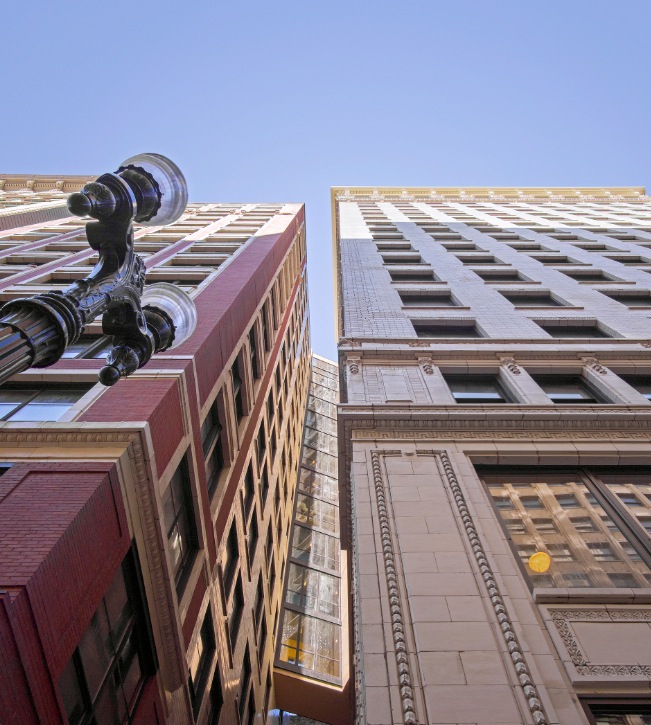 A concrete bridge connects the two buildings at all floors above the fifth level at Infinite Chicago. This allowed for the removal of three unsightly fire escapes. Photo courtesy CA Student Living.
A concrete bridge connects the two buildings at all floors above the fifth level at Infinite Chicago. This allowed for the removal of three unsightly fire escapes. Photo courtesy CA Student Living.
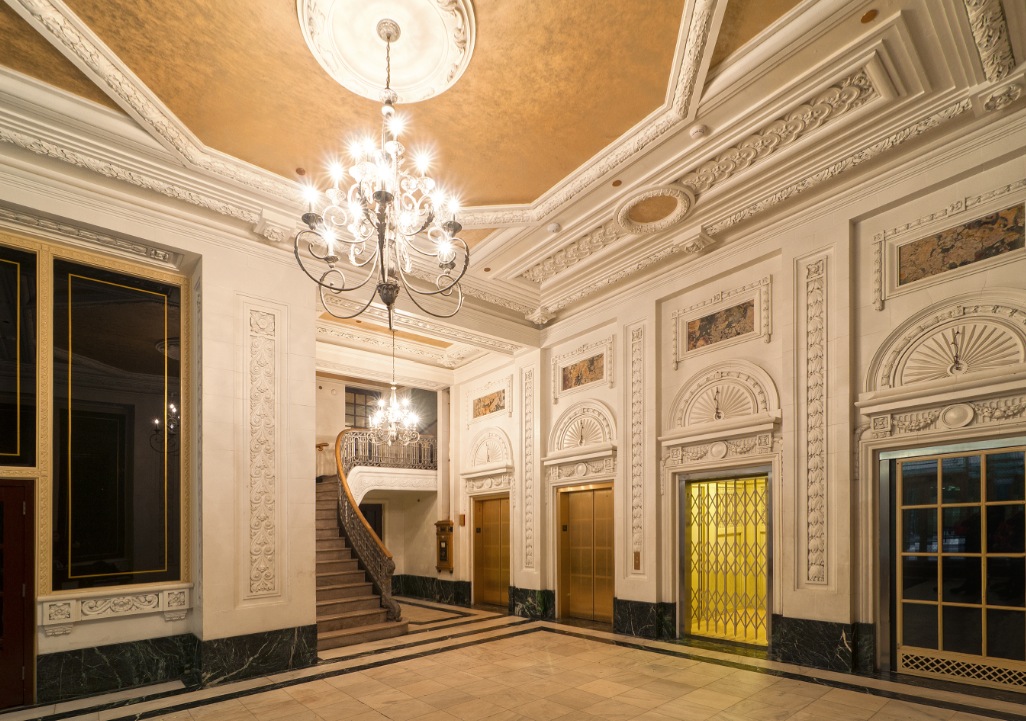 The renovated lobby of the Steger Building. Photo courtesy Pappageorge Haymes Partners.
The renovated lobby of the Steger Building. Photo courtesy Pappageorge Haymes Partners.
Related Stories
Reconstruction Awards | Nov 27, 2017
Patient friendly: The University of Chicago Medicine Center for Care and Discovery adds 203 new beds
Strict infection control and life safety measures were implemented to protect patients on other floors as work proceeded.
Reconstruction Awards | Nov 27, 2017
The birthplace of General Motors
The automotive giant salvages the place from which it sprang, 131 years ago.
Reconstruction Awards | Nov 21, 2017
Mama mia! What a pizzeria!: It started as a bank nearly a century ago, now it’s a pizza parlor with plenty of pizzazz
The first floor features a zinc bar and an authentic Neapolitan pizza oven.
Reconstruction Awards | Nov 21, 2017
Honor Guard: San Francisco’s historic Veterans Building pays homage to those who served in World War I and other foreign wars
The Veterans Building houses the War Memorial staff, the city’s Arts Commission, the Opera’s learning center and practice/performance node, the Green Room reception venue, and the 916-seat Herbst Theatre.
Reconstruction Awards | Nov 20, 2017
Eyes wide open: Students can see their new home’s building elements
The two-phase project revamped an opaque, horseshoe-shaped labyrinth of seven buildings from the ’60s and ’70s.
Reconstruction Awards | Nov 17, 2017
Gray lady no more: A facelift erases a landmark’s wrinkles, but not her heritage
The Building Team restored the granite and terra cotta façade and reclaimed more than 500 double-hung windows.
Reconstruction Awards | Nov 17, 2017
Elegance personified: New life for a neglected but still imposing retail/office space
The building was in such disrepair that much of the reconstruction budget had to go toward structural, mechanical, and electrical infrastructure improvements.
Reconstruction Awards | Nov 16, 2017
Back to the '20s: Coney Island gets a new eatery reminiscent of the past
This project included the restoration of the landmark Childs Restaurant.
Reconstruction Awards | Nov 15, 2017
Foyer fantastique: Faded images provide the key to a historic theater's lobby restoration
The restoration relied heavily on historic photos and drawings.
Reconstruction Awards | Nov 14, 2017
Hallowed ground: A Mormon temple rises from the ashes of a fire-ravaged historic tabernacle
Parts of the tabernacle’s exterior shell were the only things that survived the blaze.


